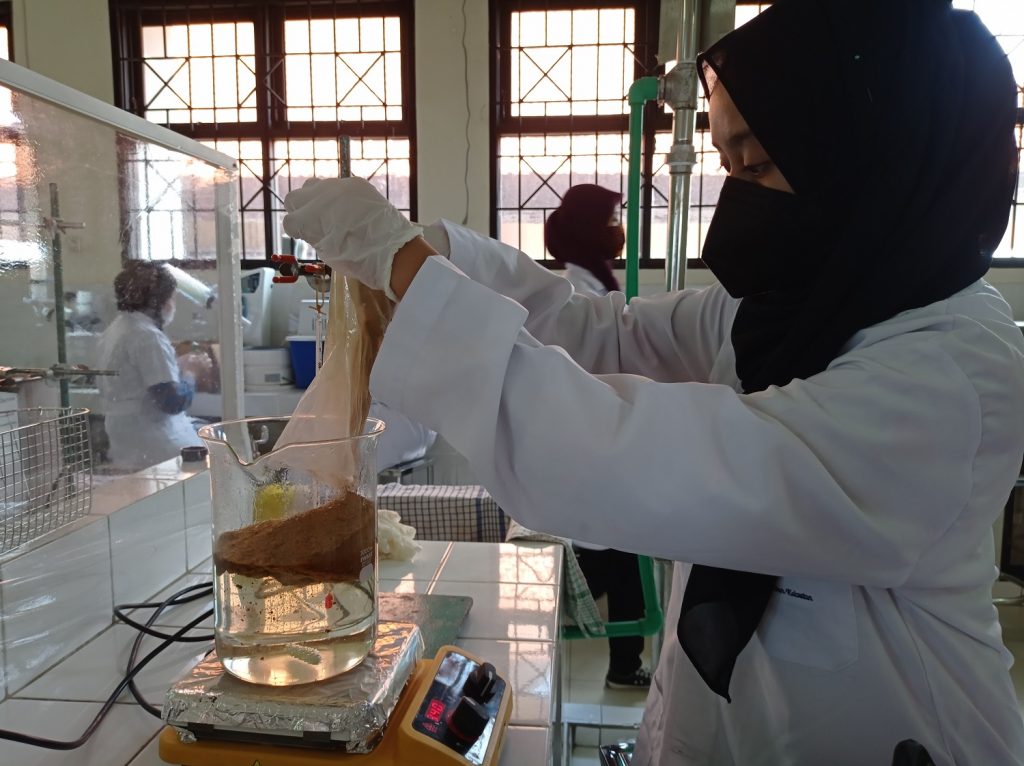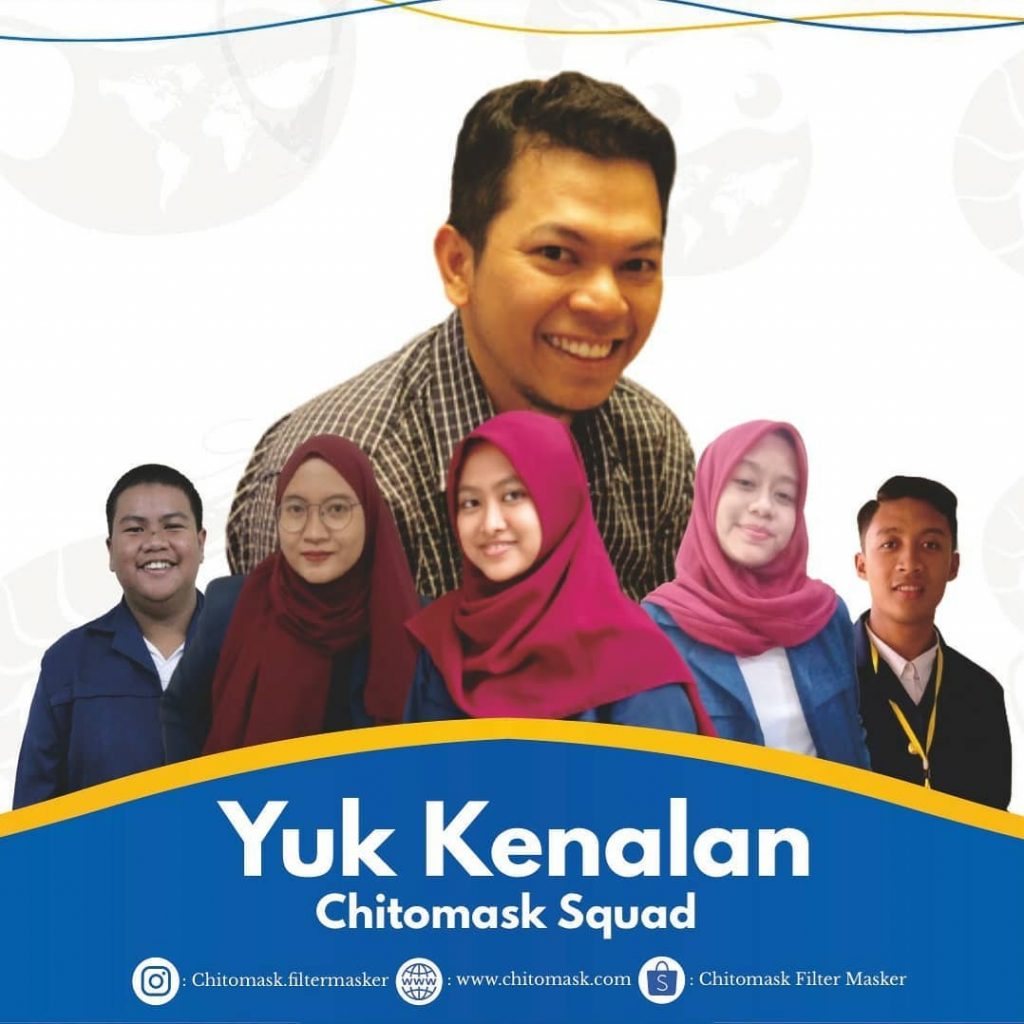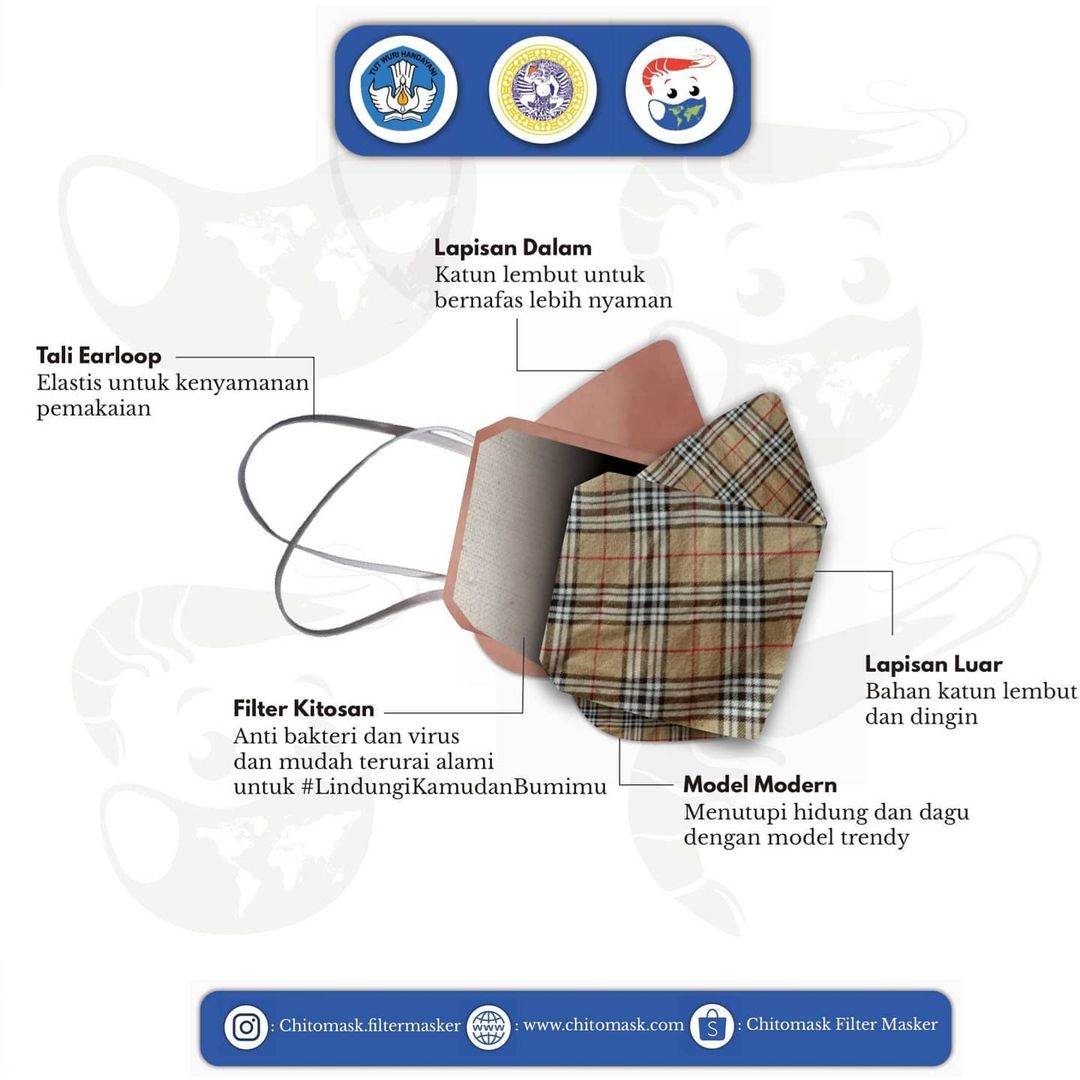UNAIR NEWS – Five Universitas Airlangga students presented Chitomask, an environmentally friendly antibacterial and antiviral filtered cloth mask product from shrimp shell waste.
For this idea, the five students passed the Student Creativity Program Entrepreneurship category (PKM-K) and received funding from the Director General of Higher Education of the Ministry of Education, Culture, Research, and Technology of the Republic of Indonesia in 2021.
The five students are Reza Istiqomatul Hidayah, a student of the Faculty of Fisheries and Marine Sciences (FPK 2017), Muhammad Rizky Widodo and Salsabila Farah Rafidah, students of the Faculty of Public Health (FKM 2018). There is also Ardelia Bertha Prastika, a student of the Faculty of Medicine (FK 2019) and Firman Hidayat, a student of the Faculty of Science and Technology (FST 2019).
Prior to receiving this funding, the five often win competitions and even a silver medal on the international scene.
As reported from the Chitomask Instagram page, the Covid-19 variant is more contagious, so more protection is needed. In this regard, Chitomask can provide additional protection with filters with antiviral and antibacterial capabilities. Its biodegradable material will decompose easily and naturally so that it can minimize mask waste during a pandemic. The masks also have trendy designs.

In line with previous statement, Ardelia Bertha Prastika as CEO said that her products can decompose in a short period of time. “Chitomask does not damage the environment. It takes a month at most to decompose,” she said.
In the production process, Ardelia admitted that the pre-production and production stages take five days.
“Before our PKM was funded, we had researched what fabrics were compatible for filters. So in the process, chitosan (shrimp shell waste, ed) is made into a gel first until it shows a clear color and is concentrated. If it is calculated from the stages of making the gel to the coating, it takes three days. Meanwhile, the filter production takes two days, the first day is dissolving the chitosan, and the second day is baking,” added Ardel.
Furthermore, the Chitomask team mentions several advantages of chitosan. It has a non-toxic compound, does not contain allergy-triggering proteins, and as a natural material, it has high biocompatibility, bioactivity, and biological safety.
The team also supports several SDGs achievements, including the 14th SDG regarding life below water, which prevents all forms of marine pollution.

According to CEO Chitomask, health and environmental impacts should be simultaneously handled together. It means both of them are equally important.
“Hopefully, in the future, people can be wise in their attitude, even in a difficult phase like a pandemic. It must be remembered that we coexist with the environment. The pandemic may end, but don’t create new problems for the environment,” Ardelia concluded.
Products with the tagline #LindungiKamudanBumimu are sold from Rp. 15,000 to Rp. 32,000. From July 18 to 25, 2021, Chitomask soft launch will be offered at much more economical price.
For purchase, you can order it at http://shopee.co.id/Chitomask_filtermasker and tokopedia.com/Chitomask
Author: Viradyah Lulut Santosa
Editor : Binti Q. Masruroh





